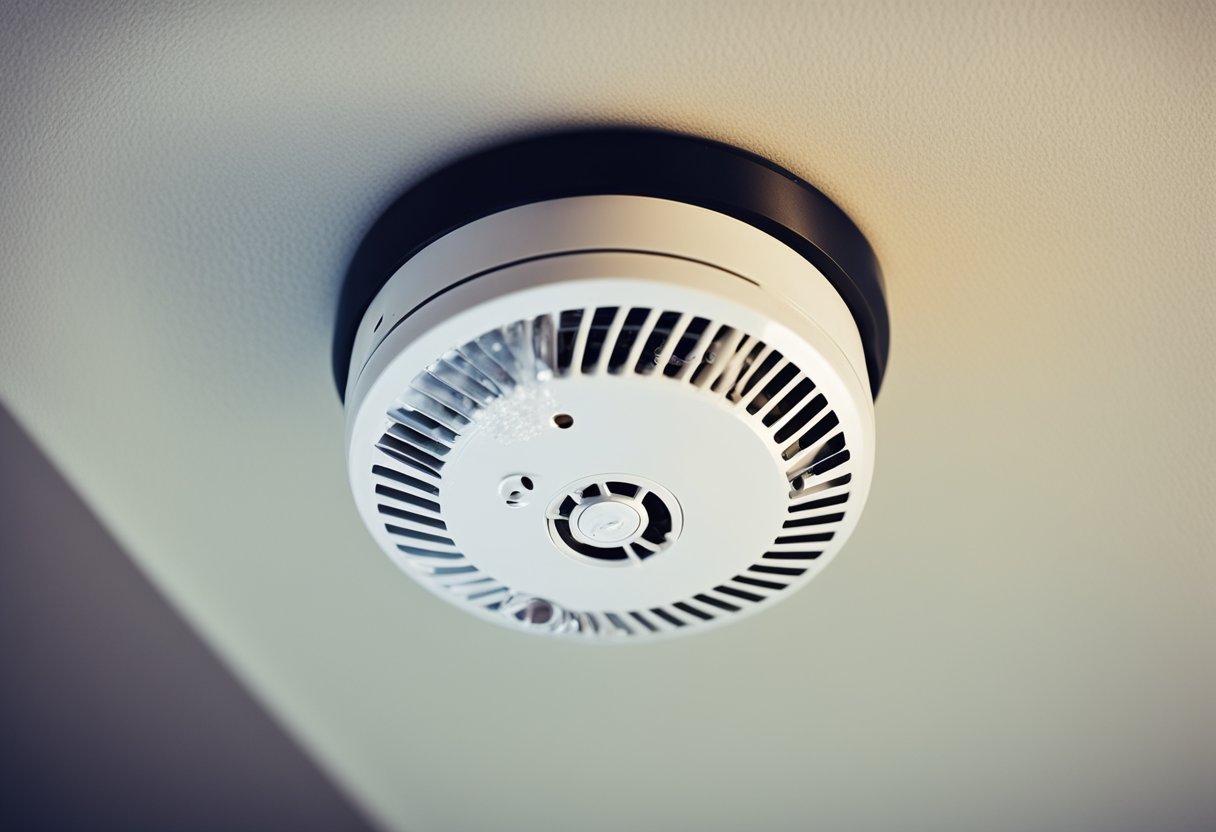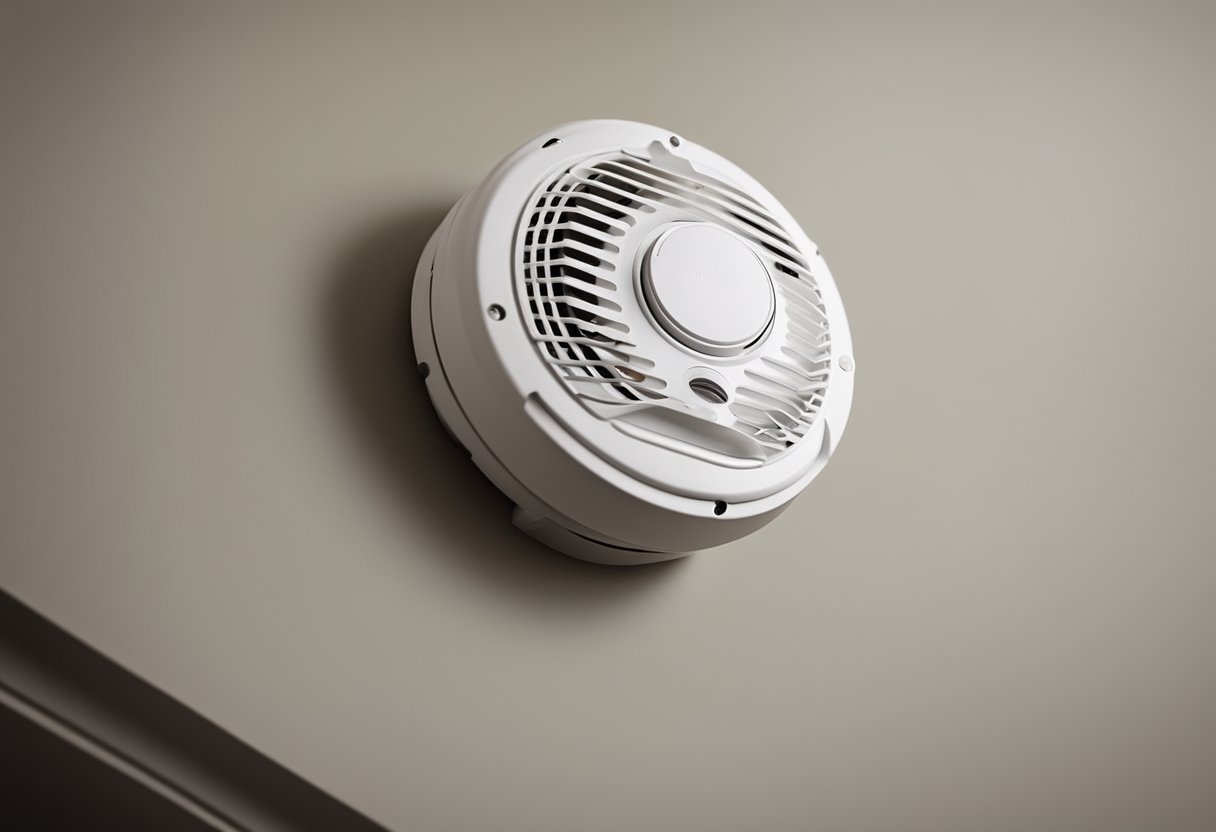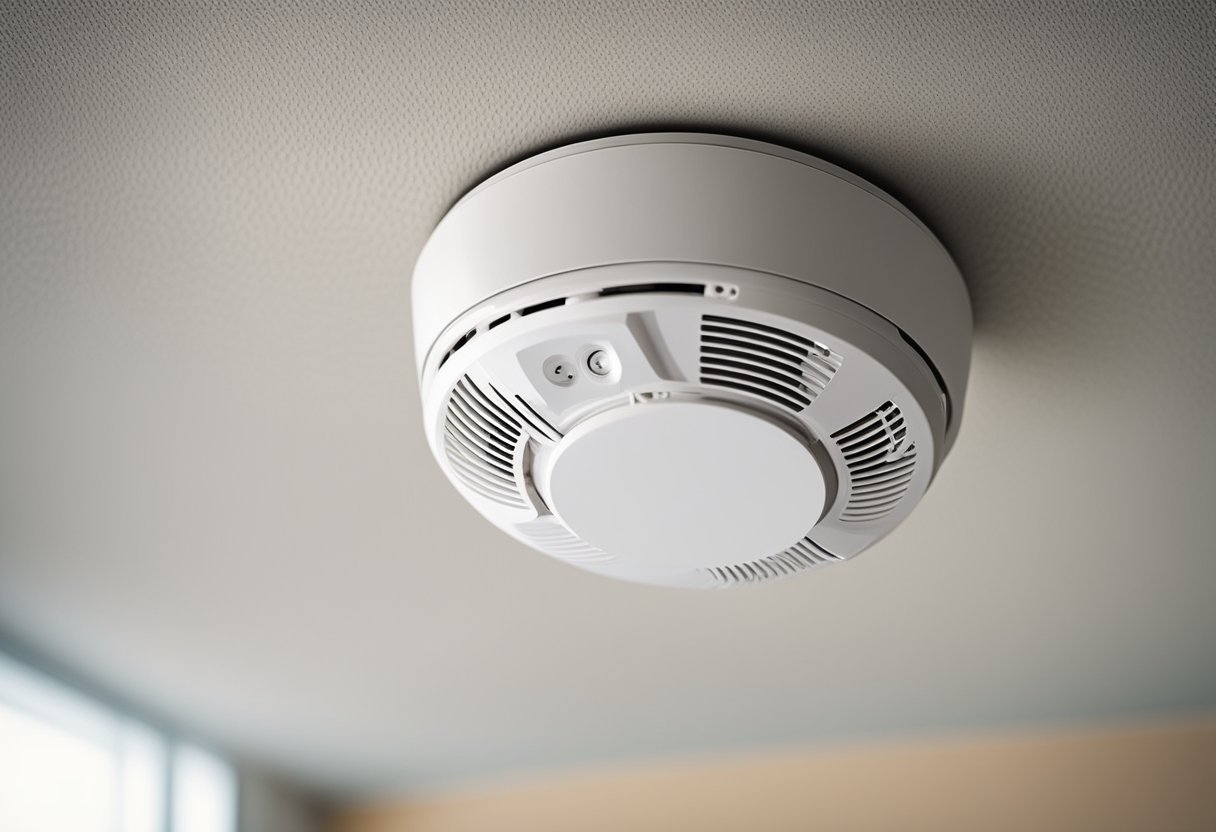Smoke detectors are essential devices that can save lives in the event of a fire. They are designed to detect smoke and sound an alarm to alert you of a potential fire. Smoke detectors are available in various types and models, each with its unique features and benefits. Understanding how smoke detectors work and how to choose the right one for your home or business can help you stay safe and protected.

Smoke detectors work by detecting the presence of smoke in the air. They use various sensors, including photoelectric and ionization sensors, to detect smoke particles. When smoke is detected, the alarm is triggered, alerting you to the potential danger. Smoke detectors can be battery-operated or hard-wired, and some models come with additional features, such as carbon monoxide detection or wireless interconnectivity.
If you’re in the market for a smoke detector, you may have some questions about how they work and which type is best for your needs. Some frequently asked questions include: How often should I replace my smoke detector batteries? Are photoelectric or ionization smoke detectors better? What should I do if my smoke detector goes off? By understanding the answers to these questions and choosing the right smoke detector for your home or business, you can have peace of mind knowing that you are well-protected in the event of a fire.
Key Takeaways
- Smoke detectors are essential devices that can save lives in the event of a fire.
- Smoke detectors work by detecting the presence of smoke in the air and sounding an alarm to alert you of potential danger.
- By understanding how smoke detectors work and choosing the right one for your needs, you can stay safe and protected.
Understanding Smoke Detectors

If you’re looking to protect your home or business from the dangers of fire, then you need to understand smoke detectors. Smoke detectors are devices that detect the presence of smoke and sound an alarm to alert you to the danger of fire. There are several different types of smoke detectors, each with its own unique features and benefits.
Photoelectric Smoke Detectors
Photoelectric smoke detectors use a photoelectric sensor to detect smoke. The sensor contains a light source and a light sensor. When smoke enters the sensing chamber, it scatters the light, which triggers the alarm. Photoelectric smoke detectors are generally more effective at detecting smoldering fires, such as those caused by cigarettes, than ionization smoke detectors.
Ionization Smoke Detectors
Ionization smoke detectors use a small amount of radioactive material to ionize the air inside the detector. When smoke enters the chamber, it disrupts the electric current, which triggers the alarm. Ionization smoke detectors are generally more effective at detecting fast-burning fires, such as those caused by cooking oil or paper.
Heat Detectors
Heat detectors are designed to detect changes in temperature, rather than smoke. There are two main types of heat detectors: fixed temperature heat detectors and rate-of-rise heat detectors. Fixed temperature heat detectors trigger the alarm when the temperature reaches a certain level, while rate-of-rise heat detectors trigger the alarm when the temperature rises quickly.
Types of Smoke Detectors
There are several different types of smoke detectors, including commercial smoke detectors, domestic smoke detectors, optical smoke detectors, and projected beam smoke detectors. Commercial smoke detectors are designed for use in large buildings, while domestic smoke detectors are designed for use in homes. Optical smoke detectors use a light source and a light sensor to detect smoke, while projected beam smoke detectors use a beam of light to detect smoke.
Smart Smoke Detectors
Smart smoke detectors are connected to the internet and can be controlled using a smartphone app. They can also be integrated with other smart home devices, such as the Google Nest Protect. Smart smoke detectors can provide more detailed information about the location and severity of a fire than traditional smoke detectors.
Battery Power and Life
Smoke detectors can be powered by a variety of different batteries, including lithium batteries, AA batteries, and 9-volt batteries. The battery life of a smoke detector can vary depending on the type of battery and how often the detector is used. Some smoke detectors have built-in batteries that can last for up to 10 years.
Sensing and Detection
Smoke detectors use a sensing chamber to detect smoke. The chamber contains electrically charged plates that attract smoke particles. When smoke particles enter the chamber, they disrupt the electric current, which triggers the alarm.
Installation and Maintenance
Smoke detectors should be installed on every floor of your home or business, as well as in stairways and other high-risk areas. They should be tested regularly to ensure that they are working properly. Smoke detectors can be hardwired or battery-operated, and some models can be interconnected to provide better coverage.
Fire Safety and Prevention
Smoke detectors are an important part of fire safety and prevention. They can help to detect fires early, giving you more time to evacuate and call for help. Other fire safety measures include having a fire escape plan, keeping flammable materials away from heat sources, and practicing safe cooking habits.
Alarm Systems
Smoke detectors are often part of a larger fire alarm system. Fire alarm systems can include manual call points, fire alarm control panels, and audible alarms. They can also be connected to a central monitoring station, which can alert the fire department in the event of a fire.
Carbon Monoxide Detectors
Carbon monoxide detectors are similar to smoke detectors, but they are designed to detect the presence of carbon monoxide, a toxic gas that can be produced by faulty heating systems and other sources. Carbon monoxide detectors use an electrochemical sensor to detect carbon monoxide.
Pros and Cons
Smoke detectors have many benefits, including early detection of fires and improved fire safety. However, they can also be prone to false alarms and nuisance alarms, which can be a nuisance for homeowners and business owners.
Regulations and Standards
Smoke detectors are subject to regulations and standards set by government agencies, such as the National Fire Protection Association (NFPA) and the Singapore Civil Defence Force (SCDF). These regulations and standards help to ensure that smoke detectors are safe and effective.
Understanding Fires
Understanding how fires work is an important part of fire safety and prevention. Fires are caused by combustion, which is a chemical reaction between fuel and oxygen. Different types of fuel can produce different types of fires, which can have different characteristics and dangers.
Frequently Asked Questions

What are the benefits of having a smoke detector?
Having a smoke detector installed in your home can save your life. Smoke detectors can detect smoke and alert you to the presence of a fire, giving you time to evacuate and call for help. They can also help to minimize damage to your property by detecting fires early.
What are the different types of smoke detectors available?
There are two main types of smoke detectors: ionization smoke detectors and photoelectric smoke detectors. Ionization smoke detectors are better at detecting fast-burning fires, while photoelectric smoke detectors are better at detecting slow-burning fires. Some smoke detectors also have both types of sensors, which are called dual-sensor smoke detectors.
How does a photoelectric smoke detector work?
A photoelectric smoke detector works by using a light source and a photosensor. When smoke enters the detector, it scatters the light, which triggers the photosensor and sets off the alarm.
What is the lifespan of a smoke detector battery?
The lifespan of a smoke detector battery can vary depending on the type of battery and the manufacturer. However, it is recommended that you replace the batteries in your smoke detector at least once a year to ensure that they are working properly.
Can smoke detectors detect vape smoke?
Smoke detectors are designed to detect smoke from fires, not from vaping. However, some smoke detectors may be triggered by the aerosol produced by vaping, so it is best to avoid vaping near smoke detectors.
Are smoke detectors required by law in Singapore?
Yes, smoke detectors are required by law in Singapore. The Singapore Civil Defence Force (SCDF) requires all residential and commercial buildings to have smoke detectors installed. It is important to ensure that your smoke detectors are working properly and are tested regularly to ensure that they are in good working condition.




